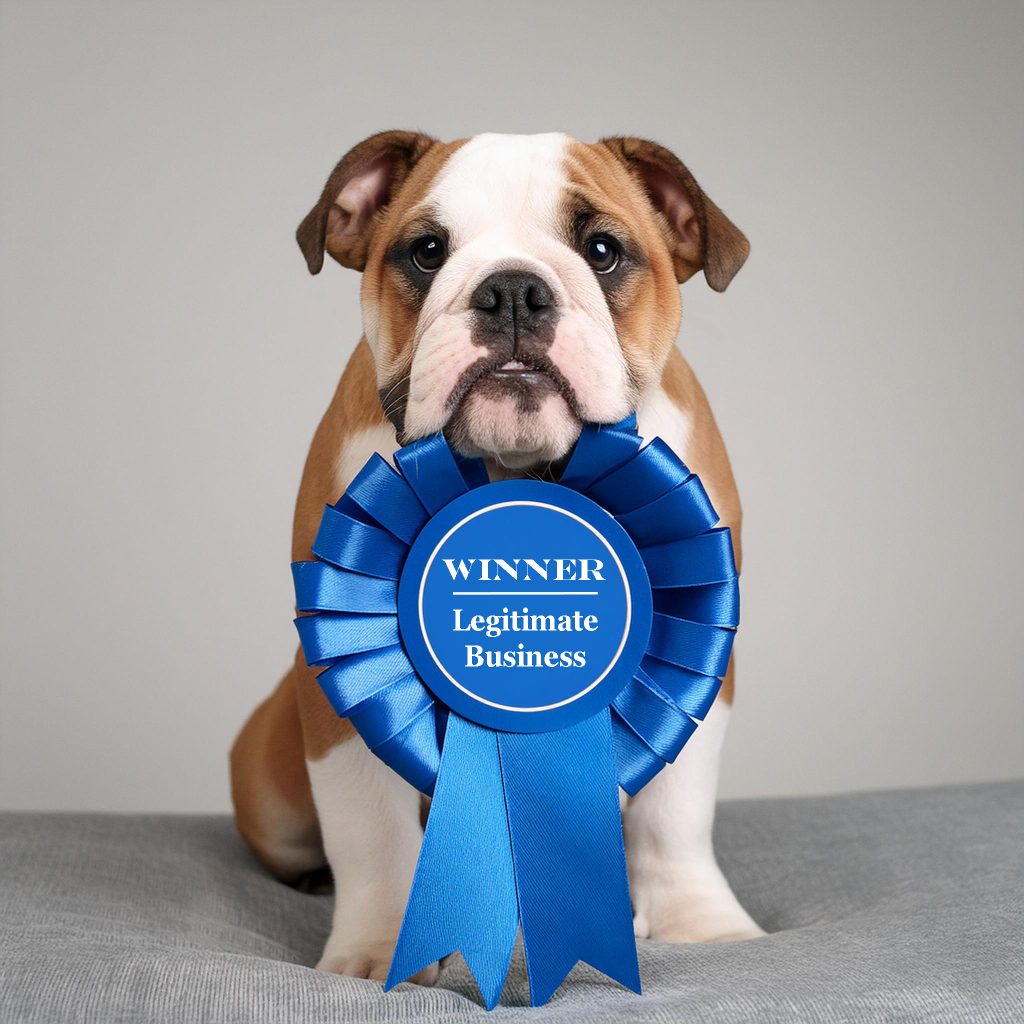For many dog enthusiasts, the love for their best friend extends far beyond companionship. Some have taken their passion further by entering prized canines in shows and competitions. Those who pursue this as a legitimate business, understanding IRS hobby loss rules is a must.
The Internal Revenue Service takes a serious interest in distinguishing between hobbies and legitimate businesses, failure to prove a profit motive can lead to unfavorable tax consequences. In this guide, we will explore steps a taxpayer should take to document and support their business motive for showing their beloved pups, ensuring they stay on the right side of IRS hobby loss rules.
Understanding IRS Hobby Loss Rules
The IRS imposes strict guidelines on deducting expenses related to activities that are not undertaken for profit. Under the hobby loss rules, taxpayers can only claim deductions for hobby expenses up to the amount of income generated by that activity. Any excess expenses are considered hobby losses and cannot be used to offset other types of income. This limitation can significantly impact a taxpayer’s tax liability, making it crucial to establish a profit motive for any dog showing activities.
Proving Your Profit Motive

Demonstrating a profit motive is not a one-time event; rather, it is an ongoing process that requires diligent record-keeping, strategic planning, and the commitment to run a legitimate business. Here are the key steps a taxpayer should consider to bolster their case before the IRS:
Maintain Comprehensive Records
Meticulous record-keeping is the foundation of any successful business, and dog showing is no exception. Taxpayers should keep detailed records of all income and expenses related to their dog showing activities. This includes entry fees for shows and competitions, travel costs (airfare, hotels, meals), grooming supplies and professional grooming services, veterinary expenses, advertising and marketing costs, kennel or facility expenses (rent, utilities, maintenance), the cost of purchasing and breeding dogs, and income from stud fees, sale of puppies, and prize money.
Good record-keeping practices involve maintaining receipts, invoices, bank statements, and a well-organized accounting system. This level of documentation not only demonstrates a serious approach to the activity but also provides valuable insights into the financial performance and potential profitability of the business.
Develop a Comprehensive Business Plan
A smartly crafted business plan is a powerful tool that can serve as compelling evidence of a profit motive. The taxpayer should outline their goals, strategies for generating income, target markets, competitive analysis, and projected financial statements. A detailed business plan showcases a calculated approach to making the activity profitable and demonstrates a commitment to long-term success.
Obtain Necessary Licenses and Permits
Having the required licenses and permits for operating a dog breeding or showing business can further substantiate the taxpayer’s intent to run a legitimate business. This may include a business license, kennel license, sales tax permit, or any other relevant permits required by local or state authorities. Compliance with legal requirements is a hallmark of a serious business endeavor.
Pursue Expertise and Education
Engaging in activities that enhance the taxpayer’s knowledge and expertise in the field can bolster the case for a profit motive. This could include attending seminars, workshops, or training programs related to dog breeding, handling, grooming, or show techniques. Maintaining records of these educational pursuits can serve as evidence of their commitment to mastering the craft and staying competitive in the industry
Allocate Dedicated Space and Resources
Setting aside a specific area or facility for housing, breeding, and caring for the dogs can demonstrate a substantial commitment to the activity. This could involve converting a portion of the home into a dedicated kennel or investing in a separate breeding or boarding facility. Additionally, purchasing specialized equipment, such as grooming tools or show crates, can further solidify the business intent.
Market the Business
Actively promoting the dog showing or breeding business can substantiate the profit motive. This could involve creating a professional website, advertising in relevant publications or online platforms, attending trade shows or networking events, and building a strong social media presence. Successful businesses invest in marketing and promotion to attract customers and grow their reach.
Seek Professional Advice
Consulting with professionals, such as experienced breeders, handlers, or industry experts, can provide valuable insights and guidance for running a successful dog showing or breeding business. Maintaining records of these consultations and implementing their advice can demonstrate a serious commitment to making the activity profitable and a willingness to learn from those with expertise in the field.
Document Successes and Achievements
Keeping detailed records of wins, placements, and other achievements at shows and competitions can serve as evidence of the taxpayer’s expertise and the potential for generating income. Additionally, tracking the sale of puppies, stud fees, or other income sources can help establish a pattern of profitability over time, further strengthening the case for a legitimate business.
Structuring Your Business for Risk Management
While proving a profit motive is crucial, it is equally important to structure the dog showing or breeding business in a way that mitigates potential risks and liabilities. Here are some strategies to consider:
Consider a Limited Liability Company (LLC)
Forming a Limited Liability Company (LLC) is an excellent option for small businesses and sole proprietorships. An LLC offers personal asset protection by separating the owner’s personal assets from the business’s liabilities. This means that if the business is sued or faces financial difficulties, the owner’s personal assets, such as their home or personal bank accounts, are generally protected from creditors.
Explore Insurance Options
Obtaining appropriate insurance coverage is crucial for managing risks in a dog breeding or showing business. Some insurance options to consider include general liability insurance, professional liability insurance (errors and omissions), animal bailee insurance, and commercial property insurance. These policies can protect the business from third-party claims, negligence claims, loss or injury of clients’ animals, and damage to physical assets.
Implement Robust Contracts and Agreements
Well-drafted contracts and agreements can help mitigate risks and protect the business from potential legal disputes. Some essential contracts to have in place include client agreements, breeding contracts, non-disclosure agreements (NDAs), and liability waivers. These documents outline the terms and conditions of service, protect confidential information, and require clients or visitors to acknowledge and assume certain risks associated with being around dogs.
Incorporate as a Corporation
For businesses with higher risk exposure or potential for significant growth, incorporating as a corporation (e.g., S-Corporation or C-Corporation) can provide an additional layer of personal asset protection. Corporations are separate legal entities from their owners, shielding the owner’s personal assets from business liabilities and debts.
Seek Professional Legal and Accounting Advice
Consulting with experienced legal and accounting professionals is essential when structuring a business for risk management. Attorneys can guide you through the process of forming an LLC or corporation, drafting contracts, and ensuring compliance with relevant laws and regulations. Accountants can advise on tax implications and financial strategies for the chosen business structure.
Embracing the Emotional Connection
While the practical aspects of running a dog showing or breeding business are crucial, it’s important to recognize and embrace the emotional connection that drives many enthusiasts to this pursuit. For many, their love for dogs transcends mere financial gain, and their passion for the sport fuels their dedication and commitment. By documenting and supporting their profit motive, taxpayers can ensure that their heartfelt passion is recognized as a legitimate business endeavor, helping them pursue their dreams while staying compliant with tax regulations.
Conclusion
Navigating IRS hobby loss rules for dog showing can be a weighty task, but with the right approach, taxpayers can confidently pursue their passion while mitigating potential tax consequences. By maintaining comprehensive records, developing a solid business plan, obtaining necessary licenses and permits, actively seeking education and professional advice, allocating dedicated resources, marketing and promoting their business, and documenting successes, taxpayers can build a persuasive case for their profit motive. Additional Information about the topic: Avoiding Hobby Loss Rules, A Guide for Show Dog Owners.
Furthermore, structuring the business for risk management through strategies such as forming an LLC, obtaining appropriate insurance coverage, implementing robust contracts and agreements, and seeking professional legal and accounting advice can provide peace of mind and protect personal assets.
Ultimately, the journey of proving a profit motive is not just about satisfying the IRS; it’s about embracing the emotional connection that fuels our passions and pursuing our dreams with unwavering dedication. By following these steps, dog enthusiasts can turn their beloved hobby into a thriving business, allowing them to share their passion with the world while enjoying the financial rewards of their hard work and commitment. Additional information is available here: Here’s what taxpayers need to know about paying taxes on their hobby activities | Internal Revenue Service (irs.gov)

- How does the IRS determine whether a dog showing activity qualifies as a legitimate business or is considered a hobby? The IRS distinguishes between hobbies and legitimate businesses based on whether the activity is pursued with a profit motive. To determine this, the IRS looks at factors such as the taxpayer’s record-keeping practices, the presence of a business plan, obtaining necessary licenses and permits, pursuing education and expertise in the field, allocating dedicated space and resources, actively marketing the business, seeking professional advice, documenting successes and achievements, and structuring the business for risk management.
- Are there any specific criteria or thresholds that taxpayers must meet to prove their profit motive in the context of dog showing activities? While there are no specific numerical thresholds set by the IRS, taxpayers must demonstrate a genuine intent to make a profit from their dog showing activities. This involves maintaining comprehensive records, developing a solid business plan, obtaining necessary licenses and permits, actively seeking education and professional advice, allocating dedicated resources, marketing and promoting the business, documenting successes, and structuring the business for risk management. These actions collectively support the taxpayer’s assertion of a profit motive.
- What are some common challenges or pitfalls that dog owners may encounter when trying to establish their dog showing or breeding activities as a legitimate business for tax purposes? Some common challenges or pitfalls include inadequate record-keeping practices, failure to develop a comprehensive business plan, lack of necessary licenses and permits, insufficient education or expertise in the field, inadequate allocation of resources, ineffective marketing efforts, failure to seek professional advice, and inability to document successes and achievements. Additionally, improper structuring of the business for risk management, such as not obtaining appropriate insurance coverage or failing to implement robust contracts and agreements, can also pose challenges in establishing the activity as a legitimate business for tax purposes.
